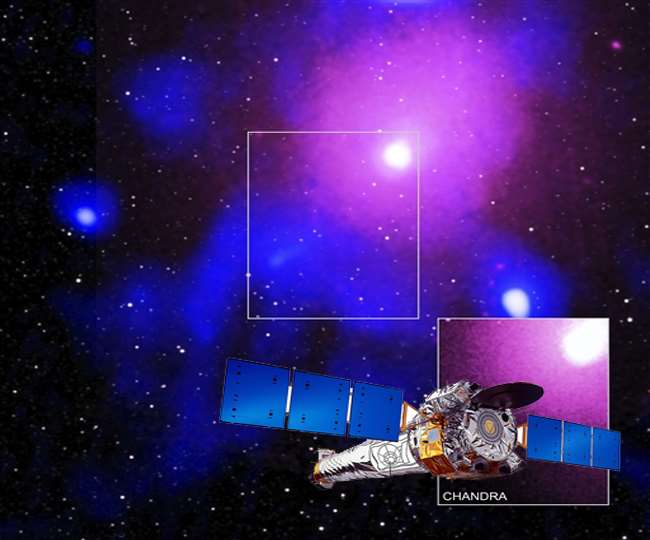
Melbourne [Pret] Astronomers have detected the largest explosion in the universe since the Big Bang that occurred in a supermassive black hole. The Pune-based giant meter wave radio telescope (GMRT) and Chandra X-ray Observatory and Australian radio telescopes were used to detect this. Chandra X-ray Observatory is an artificial satellite launched by NASA on 23 July 1999 on STS-93. It was named in honor of Indian American physicist Subramanian Chandrasekhar, who is known for determining the maximum mass for white dwarf stars.
According to a study published in the journal Astrophysical, the explosion occurred in a black hole present in a group of galaxies (Ophiucus) located 39 million light-years away from Earth. It states that the explosion was so great that it emitted five times more energy than the explosion in a cluster of galaxies called MS 073574. The eruption in this group was considered to be the largest explosion ever.
Melanie Johnston Holt, the co-author of the study from Curtin University, Australia, said, “We have seen many explosions between galaxies, but this explosion is really tremendous.” He said that but the explosion happened very slowly. It was just like we see an explosion in slow motion.
15 galaxies can fit inside it
Simona Giacintucci, who is associated with the Naval Research Laboratory in the US and the lead author of the study, said the eruption was similar to the 1980 eruption of Mount St. Helens that devastated the mountain tops. The explosion created a huge crater between hot gases that could contain about 15 galaxies.
Astronomers refused to accept the explosion
Photographs taken from the ‘X-ray’ of ‘Ophiucus’ showed that there was a unique bulge there. Astronomers at first refused to put it in the category of an explosion because they believed that gases required too much energy to make such a large crater, but then information from two other Space Observatories and telescopes from Australia and India By mixing the radio data found, it was confirmed that the rise is actually proof of a huge pit.
Radio data and X-rays confirmed
Co-author of the study, NASA’s Goddard Space Flight Center in the US, co-authored Maxim Markiewicz, “During the study, we saw that both radio data and ‘X-rays’ fit together like gloves on the hands.”. He said that in such a situation we had to believe that there was a great explosion here.
Explosion study
Astronomers said that it has been more than a year since the explosion occurred. The research team is now trying to find out what might have happened in a great explosion.











